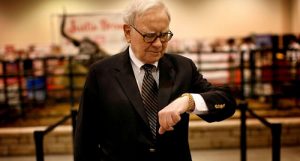Musk’s Starlink broadband company will seek exemption to sanctions so it can cover Iran
Elon Musk has said his company Starlink will ask for an exemption to sanctions, so it can provide satellite broadband to Iran.
The founder of Tesla and SpaceX posted on Twitter that Starlink is “now active on all continents, including Antarctica”.
When a fan asked if it would be possible to supply Starlink to people in Iran, Mr Musk replied: “Starlink will ask for an exemption to Iranian sanctions in this regard.”
Starlink is a fast-growing network of more than 3,000 satellites in low-Earth orbit, with tens of thousands of users in the US alone.
Mr Musk, the richest person in the world, has said that it aims to bring high-speed internet access to those in remote and rural areas.
But it is not the first time he has been asked by a Twitter fan about when he will expand the service to cover Iran, where access to the internet is heavily restricted as the government seeks to control dissent.
Mr Musk’s promise comes as protests continue in parts of Iran over the death of a young woman in police custody.
Mahsa Amini, 22, was being held by the country’s morality police for not wearing an Islamic headscarf, or hijab, to cover her hair.
Police insist she died from a heart attack, but her family said she had no history of heart problems and that she had suffered bruising to her legs.
Internet down in parts of Iran as protests continue
A third day of demonstrations on Monday saw security forces open fire on protesters in her home town, the city of Saqez, in Iran’s Kurdish region – claiming the lives of two people.
A further two died in the town of Divandarreh from “direct fire”, according to human rights group, Hengaw, with 15 injured and a fifth killed in Dehgolan, also in the Kurdish region.
Netblocks said the internet was out for more than three hours in the region, along with outages in Tehran and other Iranian cities since Friday.
Efforts to revive Iran nuclear deal
Sanctions on Iran have been imposed over recent decades as a result of the country’s nuclear activity.
These were eased as part of the 2015 nuclear deal, known as the Joint Comprehensive Plan Of Action.
But in 2018, then president Donald Trump pulled the US out of the agreement, re-imposing sanctions and prompting Tehran to start backing away from the deal’s terms.
Efforts are under way to revive the deal.
Mr Musk has not given any further details about how he will apply for an exemption.


